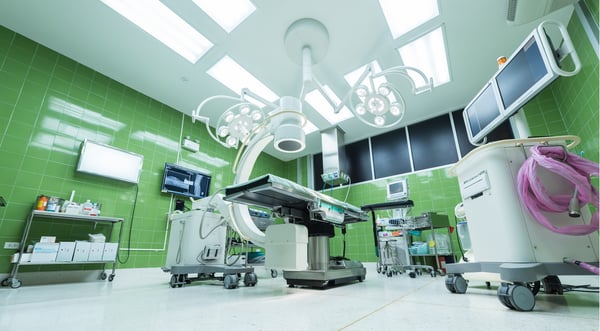
Wondering if you’re eligible for healthcare or medical equipment leasing?
Due to an ever-increasing demand to enhance the overall quality of life, the past few years saw several advancements made in healthcare equipment. These advancements further contributed to the growth of the healthcare industry.
It comes as no surprise that new and improved healthcare equipment means patients are better diagnosed and treated.
However…
This doesn’t come without a cost.
In fact, the heftiness of the cost can become a serious issue for the businesses providing these healthcare services.
Thanks to financing companies that offer healthcare equipment leasing, providing quality services with advanced healthcare equipment can now be achieved without breaking the bank.
We’re sure you’re wondering if you can qualify and afford to lease.
Here’s everything you need to know about how to qualify for healthcare equipment leasing and the rates you’ll be paying…
Let’s get started!
Costs and Qualifications of a Medical Equipment Loan
Whether you own a large hospital or simply starting your own clinic, state-of-the-art healthcare equipment is necessary to provide quality care.
This means that with healthcare equipment finance, you can now provide better services to your patients without burdening your finances.
The costs and qualifications in healthcare equipment leasing vary depending on several factors and will be discussed later on in the post.
For now, we will share the different leasing options you may come across…
Here they are:
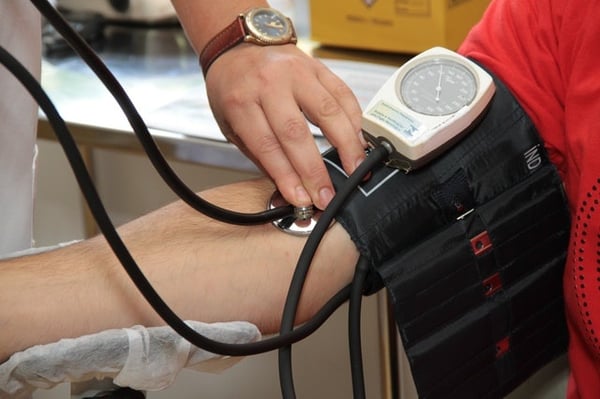
Medical Equipment Leasing Options
Medical equipment leasing companies offer different payment structures for healthcare equipment leasing. This gives healthcare providers plenty of options to choose from that suit both their needs and budget.
To sum things up…
Payment structures available for healthcare equipment leasing fall into three main categories:
1. Deferred Payments
This program allows you to get medical equipment without having to make payments for 1 - 12 months.
With this payment plan, your equipment can begin producing revenue even before your first scheduled payment.
The first scheduled payment is usually after 90 days but can be extended for as long as 12 months. Six months is the average deferred payment period. Medical equipment leasing companies will ask for contact payments of $29 - $99 for those six months usually.
2. Level Payments
Typically, this plan calls for one payment up front but sometimes first and last up front and could be 10-20% down as first payment but followed by a term of equal fixed monthly payments that don't go up or down.
3. Step Down Payments
Step down payments is just as it seems. Your payments decrease over time.
In this program, payments made are higher for the first 12 months and decrease each year of the loan. The main benefit of this is that total out of pocket cost is lowered, as the principal of the loan is paid earlier into the loan.
So how does all this benefit not only your patients but also your business…?
Measuring Revenue and Generating ROI on Healthcare Equipment
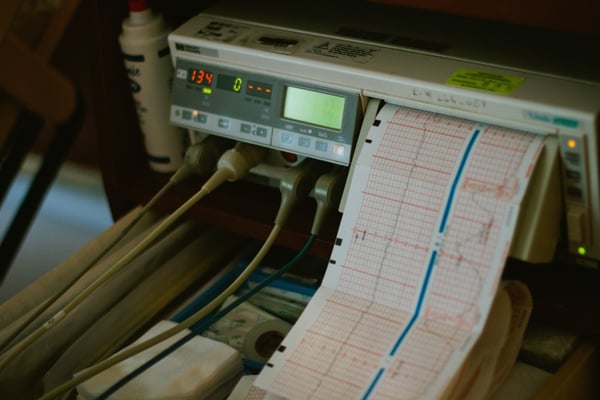
In choosing healthcare equipment, the welfare of your patients should be at the forefront of your mind.
But don’t forget that you must also consider whether the equipment chosen will also be beneficial to your business and can generate revenue.
Consider measuring your ROI to know whether the equipment has actually generated an income or has the capability of doing so.
How to Generate Revenue from Healthcare Equipment
Revenue is defined as the amount received by the business from selling goods or services. In terms of healthcare equipment, it can be defined as the payment received from patients who used it.
Here’s an example:
A laser cataract surgery will cost roughly $3,000 per eye. Supposing that there are around 10 procedures in a month, the potential monthly revenue generated will be around $30,000.
But…
How do you physically measure this revenue in the long-term?
That’s where ROI comes in…
How to Calculate ROI on your Healthcare Equipment
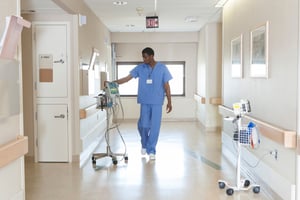 ROI or return on investment is a measure of profitability. It measures how much money was made on the equipment as a percentage of the equipment price.
ROI or return on investment is a measure of profitability. It measures how much money was made on the equipment as a percentage of the equipment price.
Calculating ROI
Calculating ROI is simple:
Just subtract the equipment cost from the revenue divided by the equipment cost.
A positive ROI is considered a good return, while a negative return means that the revenues cannot cover the equipment cost.
For example:
A LASIK machine used for cataract removal was leased at $200,000 for 60 months.
Using the same example above, if you leased the equipment under $1 Purchase Option, your monthly payment will be $3,868 for 60 months. With a potential monthly revenue of $30,000, you’ll have a net income of:
- $26,132 per month
- $313,584 per year
- $1,567,920 over lease term
Now that you’re a master in calculating ROI, you might be wondering how exactly to qualify for a medical equipment lease.
Let’s find out…
Qualifying for Medical Equipment Leasing
One of the requirements for applying for healthcare equipment leasing is the length of time your practice has been operating. Other requirements for healthcare equipment leasing depends on the size of the practice.
Healthcare Equipment Leasing Requirements for Startup Medical Practices
Startup medical practices have stricter requirements than existing or large practices.
The requirements are:
Proof you’re a licensed physician
If you’re a startup healthcare clinic, you have to prove that you are a licensed physician.
Your years as a licensed physician are then added to the length of time your business has been in operation. This means that if you’re running a business for one year and were just licensed six months ago, the length of your business is 18 months.
Credit score of 640
In order to qualify for competitive healthcare equipment leasing, you need to have a minimum credit score of 640.
To avoid any issues, it’s best to settle your tax liens and debts before applying as these can affect your credit score.
Clean bankruptcy history
Lastly, you must not have a history of bankruptcies in the last seven years. These bankruptcies reflect on your credit report and can affect your chances of obtaining a loan.
Medical Equipment Financing Requirements for an Existing Practice to Get A Competitive Offer
If you’re already in business, you must have:
At least 2 years in practice
In order to get the best rate from a medical equipment financing company, you’ll need 2 years in practice. The number of years as a licensed physician will be included in the years time in business.
650 FICO Score
Your FICO score should be 650 or better and you should have no unresolved tax liens, previous bankruptcies, foreclosures or many late payments to get a competitive offer.
Healthcare Equipment Finance Requirements for Large Multi-Practice Owners
Some medical practices are huge and could own up to 100 different practices.
Institutions like these may be constrained by tight budgets.
They may apply for healthcare equipment leasing and be approved without the need for personal guarantors. These large healthcare practices can get approved corp only.
Now that we’ve covered how to qualify, let’s get down to the rates:
Healthcare Equipment Leasing Rates
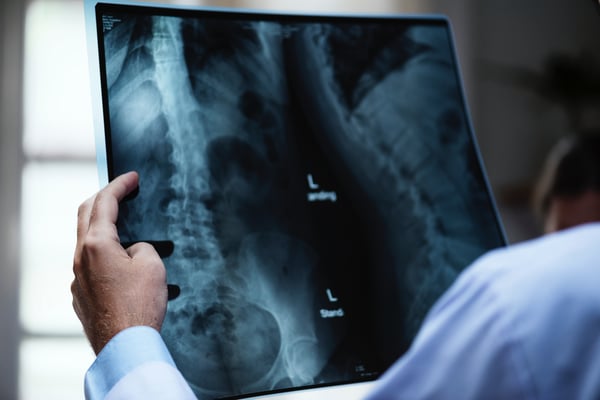
So… Why are medical doctors offered some of the lowest equipment financing rates in the industry?
That’s easy!
This is because if their business fails they always have a job at a hospital to fall back on to get them out of a jam.
Equipment lease rates for startup medical practices are possibly a tad bit higher as compared but lenders like Trust Capital will take your years licensed as a medical professional and count those years as towards time in business.
So, over two years licensed and you're technically not a startup business anymore.
Despite this…
Startup practices can also apply for 100% purchase financing just like an existing practice.
Medical Equipment leasing Payments for Startups Healthcare Practices
Let’s get down to the numbers…
If you’re a startup with a FICO score of at least 650, you can lease up to $250,000 with a simple one-page application. A full financial package would be needed for more than $250,000.00
Leasing a $150,000 worth of medical equipment would cost you approximately:
- $4,668/month for a 36-month term
- $3,646/month for a 48-month term
- $3,035/month for a 60-month term
One payment due up front. No residual, $1 buyout or EFA
But if you choose to defer payments for 90 days, your payments would look something like this:
- First three months at $0 followed by 33 months at $5,188
- First three months at $0 followed by 45 months at $3,958
- First three months at $0 followed by 57 months at $3,253
No payment due up front. No residual, $1 buyout or EFA
Existing business are slightly different…
Medical Equipment Loan Payments for Existing Businesses
If you already have an existing business, you may qualify for up to $300,000 of healthcare equipment financing with just a simple one-page credit application.
One benefit of having a longer-running business is that lower rates are given if your practice has been running for more than 3 years.
An existing business planning to lease a $300,000 worth of medical equipment can expect to pay approximately:
- $9,099/month for a 36-month term
- $7,037/month for a 48-month term
- $5,798/month for a 60-month term
One payment due up front. No residual, $1 buyout or EFA
If the payment is deferred for 90 days, you would expect to pay:
- $2,706.20/month for a 36-month term
- $2,106/month for a 48-month term
- $1,747.10/month for a 60-month term
No payment due up front. No residual, $1 buyout or EFA
Final Thoughts on Healthcare Equipment Leasing: Rates and How to Qualify
Due to the increase in demand for an improved quality of life, continuous efforts have been made to improve and advance healthcare equipment.
While this allows healthcare providers to better diagnose and treat their patients, it comes at a hefty cost.
Healthcare equipment leasing can easily address the financial challenges present in acquiring healthcare equipment. There are many healthcare leasing options to choose from that suits different needs and budgets.
When choosing your healthcare equipment, you must consider the benefits your patients can get from this.
In addition:
It’s important to keep your own business in mind and opt for leasing healthcare equipment that generates a lot of revenue and brings fast ROI.
To qualify for leasing to obtain this healthcare equipment, there are several requirements need that vary depending on the length and size of your practice.
In short: The better your personal credit report and D & B report is, the better healthcare equipment leasing offers you’ll get.
With equipment financing & equipment leasing, you’ll get to finance 100% of the equipment’s cost plus soft costs with a flexible plan that suits your budget. You can even add working capital to the same equipment lease term. Add working capital up to 25% of the equipment cost to your equipment finance agreement.
To know more about healthcare equipment leasing, call Trust Capital at 866-458-4777.
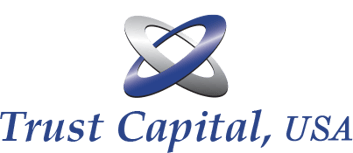

 (866) 458-4777
(866) 458-4777
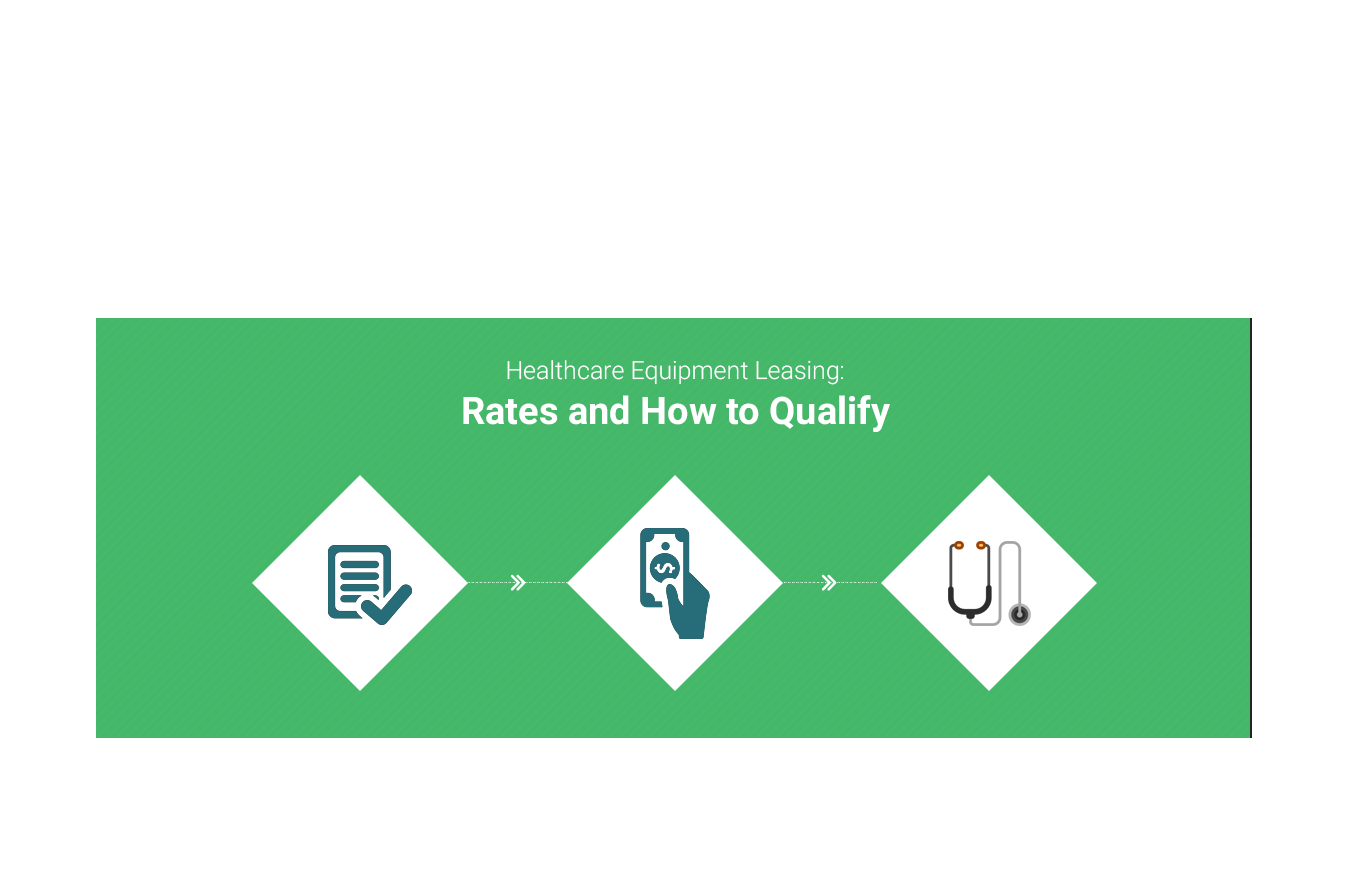
 Paul Kendall
Paul Kendall





